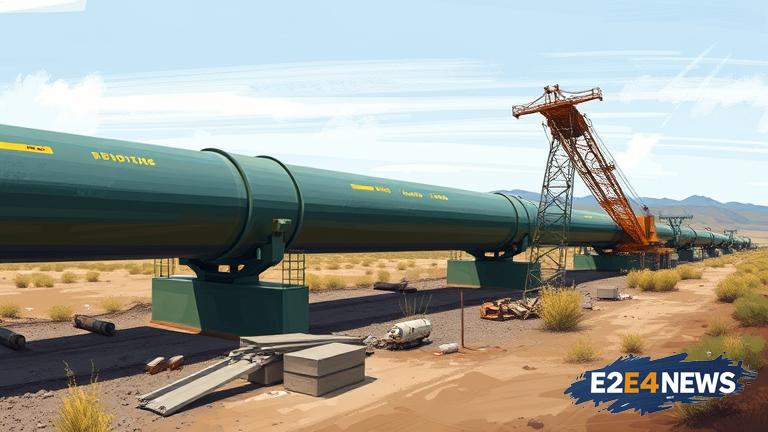The Constitution Pipeline project, a 124-mile natural gas pipeline designed to transport gas from Pennsylvania to New York, has been halted due to regulatory issues. The project, which was initially proposed in 2013, had been expected to play a crucial role in meeting the growing demand for natural gas in the northeastern United States. However, the project has faced significant opposition from environmental groups and local communities, who have raised concerns about the potential impact on the environment and public health. Despite these concerns, the project had received approval from the Federal Energy Regulatory Commission (FERC) in 2016. However, the New York State Department of Environmental Conservation (DEC) denied a critical water quality permit, citing concerns about the potential impact on the state’s waterways. The project’s developers, Williams Companies and Cabot Oil & Gas, had appealed the DEC’s decision, but the appeal was rejected by a federal court in 2018. The court’s decision was seen as a significant setback for the project, and it has now been officially halted. The halt of the Constitution Pipeline project is a significant blow to US energy infrastructure development, as it was expected to provide a critical link between the Marcellus Shale gas fields in Pennsylvania and the northeastern US market. The project’s developers had argued that the pipeline was necessary to meet the growing demand for natural gas in the region, particularly during the winter months when demand is highest. However, opponents of the project had argued that it was not necessary, and that alternative energy sources, such as wind and solar power, could meet the region’s energy needs. The halt of the Constitution Pipeline project is also a significant victory for environmental groups and local communities, who have been fighting against the project for years. The project’s opponents had raised concerns about the potential impact on the environment, including the potential for water pollution and habitat destruction. They had also raised concerns about the potential impact on public health, including the potential for air pollution and increased risk of accidents. The halt of the Constitution Pipeline project is a significant development in the ongoing debate about the role of fossil fuels in the US energy mix. As the US continues to transition towards a cleaner, more sustainable energy future, the halt of the Constitution Pipeline project is a reminder that the development of new energy infrastructure must be carefully considered and regulated. The project’s developers had argued that the pipeline was necessary to support economic growth and job creation in the region, but opponents had argued that the project would have significant negative impacts on the environment and public health. The halt of the Constitution Pipeline project is also a significant reminder of the importance of community engagement and participation in the development of new energy infrastructure. The project’s opponents had argued that the project was not in the best interests of the local community, and that alternative energy sources could provide more benefits and fewer risks. The Constitution Pipeline project is not the only pipeline project to have faced opposition and regulatory issues in recent years. Several other pipeline projects, including the Keystone XL and Dakota Access pipelines, have faced significant opposition and regulatory challenges. The halt of the Constitution Pipeline project is a significant reminder that the development of new energy infrastructure must be carefully considered and regulated, and that community engagement and participation are critical to ensuring that new energy projects are developed in a responsible and sustainable manner. The project’s developers had invested significant time and resources into the project, but the halt of the project is a significant setback for their plans. The halt of the Constitution Pipeline project is also a significant reminder of the importance of regulatory oversight and enforcement in ensuring that new energy projects are developed in a responsible and sustainable manner. The project’s opponents had argued that the project would have significant negative impacts on the environment and public health, and that regulatory oversight and enforcement were necessary to protect the public interest. The Constitution Pipeline project is a significant example of the challenges and complexities of developing new energy infrastructure in the US. The project’s developers had faced significant opposition and regulatory challenges, and the halt of the project is a reminder that the development of new energy infrastructure must be carefully considered and regulated. The project’s opponents had argued that the project was not necessary, and that alternative energy sources could meet the region’s energy needs. The halt of the Constitution Pipeline project is a significant victory for environmental groups and local communities, and a reminder that community engagement and participation are critical to ensuring that new energy projects are developed in a responsible and sustainable manner.
